It’s a nightmare when it’s the hottest part of summer and you’re dealing with your AC compressor not turning on. Your home starts heating up; the kids are getting grumpy; you’re handing out glasses of cold lemonade as fast as you can; etc. etc., you know how it goes. But nothing can stop the sweating. You need to fix that air conditioning unit fast!

Compressor problems can be incredibly difficult for anyone without the necessary expertise to solve. If the solution lies outside your expertise, you’ll need to call and HVAC professional. They can diagnose your compressor failure and get your cool air running again as fast as possible.
Read on to learn what might happen with the compressor in your outdoor air conditioner unit. You may find your AC compressor failure to be a minor issue you can fix with some basic steps.
You may potentially need maintenance or a repair done on your own system this summer if you haven’t taken care of it already.
What Is An AC Compressor?
The compressor in your AC system works in a similar way to your heart, acting somewhat like the “pump” that drives a liquid known as refrigerant through your AC. “Pump” might be misleading, though, since the compressor moves the refrigerant by compressing it into a vapor (big surprise!).
Once the refrigerant moves from the outdoor unit to the indoor unit, it absorbs the warmth from the house’s hot air that the air vents have pulled in. While the cooled air gets sent back into the rooms, the refrigerant passes back to the outside condensing unit; the outdoor unit proceeds to expel that unwanted heat outdoors (sort of like how your body sweats when you are hot).
That change in pressure takes a lot of work, and if you listen to your air conditioner when it’s running, it’s mostly the compressor you will hear. As a result, there can be significantly more wear and tear on the compressor than other parts of the AC, so mechanical problems with the compressor are a common cause of problems with AC.
How Long Does An AC Compressor Last?
AC compressors should last 10-15 years…when the air conditioner is regularly maintained. As mentioned, the compressor works hard and therefore deals with normal wear and tear, but it has to work much, much harder when the air conditioning isn’t well-maintained. That increases wear and tear and the chances of you ending up with a faulty compressor over time.
How Can I Tell If My AC Compressor Is Not Turning On?
It may be difficult for you to say with 100% certainty if your compressor is broken and not turning on. However, there are several signs to look out for. You often need special equipment and gauges to know which part of the air conditioner is causing the problem.

The compressor may be the problem when:
- Your compressor is silent (a bit obvious!). You should hear it when it’s running.
- The circuit breaker keeps tripping.
- Your vents are blowing warm air (i.e., the condenser and blower fan are both working, but the central unit is not).
But don’t forget: just because you can’t hear the compressor, that doesn’t necessarily mean the problem isn’t coming from elsewhere in the air conditioner.
Why Is My AC Compressor Not Working, But The Condenser Fan Is Still Running?
There are several possible reasons why the compressor might stop, but the fan continues to run:
Compressor Shuts Down For Safety Prevention
Any problems that make the air conditioner work extra hard to cool make your compressor work significantly harder as well. Sometimes it works non-stop and starts to overheat. Many air conditioning units are manufactured with two pressure switches – one high and one low – that, to protect the system from further damage, automatically shut the compressor off.
The low-pressure switch triggers when the pressure dips below 40 psi (pound-force per square inch), while the high-pressure one triggers when it goes above 450 psi. When these switches are activated, they send signals to cut off power to the compressor. This may seem inconvenient, but it can make the difference between a minor repair and replacing the whole unit.
Dirty Filter
When dealing with your AC compressor not turning on, check the air filters first. If your unit’s filters are clogged, your indoor AC unit can’t get the airflow it needs to transfer the coldness away from the evaporator coil. As a result, the evaporator coil can become frozen and pressure in the refrigerant can drop to an unwanted low level. When this happens, the low-pressure switch is triggered to cut the power off to the compressor.
In that case, you will need to change the filters.
Be aware that the longer your old filters remain, the more likely they are to attract bio-growth, causing your AC to smell musty.
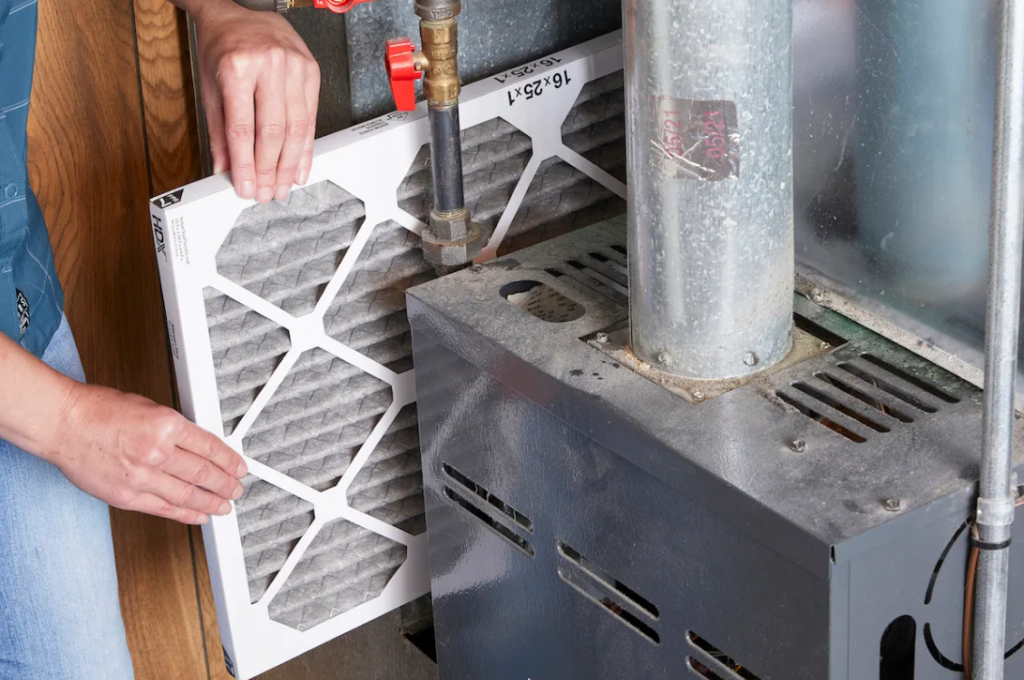
Dirty Condenser Coil
When there’s buildup on your outdoor condenser coil, it acts as an insulator, making it much harder for your unit to remove the heat it has pulled in from your house. As a result, refrigerant pressure gets so high that the high-pressure switch triggers to cut the power off.
Refrigerant Levels Have To Be Right
Remember that refrigerant is a hazardous material and you should not by any means attempt to handle it yourself. Leave it to the technicians, who know how to fix leaks and safely add and remove refrigerant. Additionally, to learn more about what you should do if your system HVAC system has a freon leak, check out our blog that talks all about it!
Electrical Problems
A lot of compressor problems are electrical in nature. In particular, if the condenser fan is running, the unit itself is getting power, but the compressor may not be.
If you are a homeowner, PLEASE DO NOT attempt any electrical repairs yourself. Doing so without possessing the necessary knowledge can have very dangerous consequences: you could short-circuit your house, damage its structure, start a fire, or even severely injure yourself.
Electrical repairs are best left to HVAC professionals who have been provided the training and expertise necessary to handle them properly.
Your Capacitor Failed
Warning: Capacitors can carry a severe charge of electricity and must be appropriately discharged before you touch the component.
The capacitor serves as the means for the compressor to start and run, but they can sometimes stop working due to either electrical surges or the units themselves failing. The good news is that capacitor replacement is relatively cheap and straightforward; however, this too should be done by someone with electrical knowledge.
Thermostat Setting Or Wiring
Sometimes your compressor is not the problem; your thermostat may not be telling your air conditioner that it needs to start cooling. Thermostats won’t give the signal to cool if they incorrectly measure the indoor temperature. That can happen if they are poorly placed, installed improperly, or just bumped really hard. Or maybe the thermostat isn’t working at all!
If this is the case, check if the batteries need to be changed or if the device’s setting is incorrect.
You can get more information on this subject by reading our blog about troubleshooting issues with your thermostat.
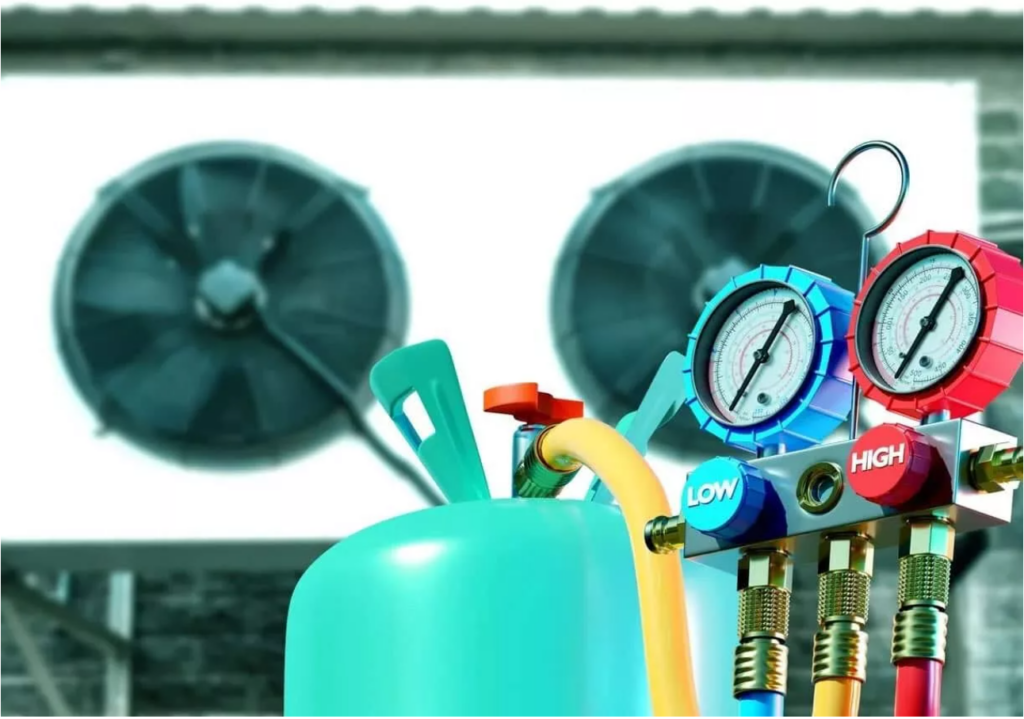
How Do I Know My AC Compressor Has A Serious Issue?
Sometimes the problem of your AC compressor not turning on will either involve costly repairs or be impossible to fix. As a result, you may have to decide if it’s worth repairing an older air conditioning compressor or better, in the long run, to replace it with a newer, more reliable one.
Let’s look at some of the serious issues that may require compressor replacement:
Winding Problems In The Electric Motor
First off: windings are the coils of wires in your motor that generate the magnetic fields and drive the motor. Part or all of the motor will stop functioning when one of those wires malfunctions (as discussed below).
Why are winding problems in the motor an issue? Well, in many cases, an air conditioner will have its compressor motor hermetically sealed. This makes the compressors more durable and able to last longer, but the problem is that if a winding shorts or burns out within the motor, the motor can’t be opened and fixed.
In other words: The motor has to be replaced.
Other motors are not sealed shut and can be rewound, but doing so can be costly. You’ll have to decide whether repairing an older motor or replacing it makes more financial sense.
For safety reasons, problems with the electrical motor should only be checked by someone with electrical knowledge. The unit should be unplugged, and capacitors (if present) discharged.
Two things to remember: the motors for most air conditioning compressors have a thermal switch that turns the motor off if it starts to overheat. When this happens, your unit needs to cool off and the switch reset (which can take a few hours) before you test for electrical problems.
Second, if the motor problem was caused by overheating, don’t forget to seek out the reason as to why! This may have started after another problem in the AC unit caused the motor to work extra hard and draw increased amperage.
Winding problems can come from power surges but typically happen in older motors and poorly maintained air conditioner units. A motor that’s pushed too hard can overheat and damage wires. In addition, parts may loosen and cause vibrations leading to winding/wire damage.
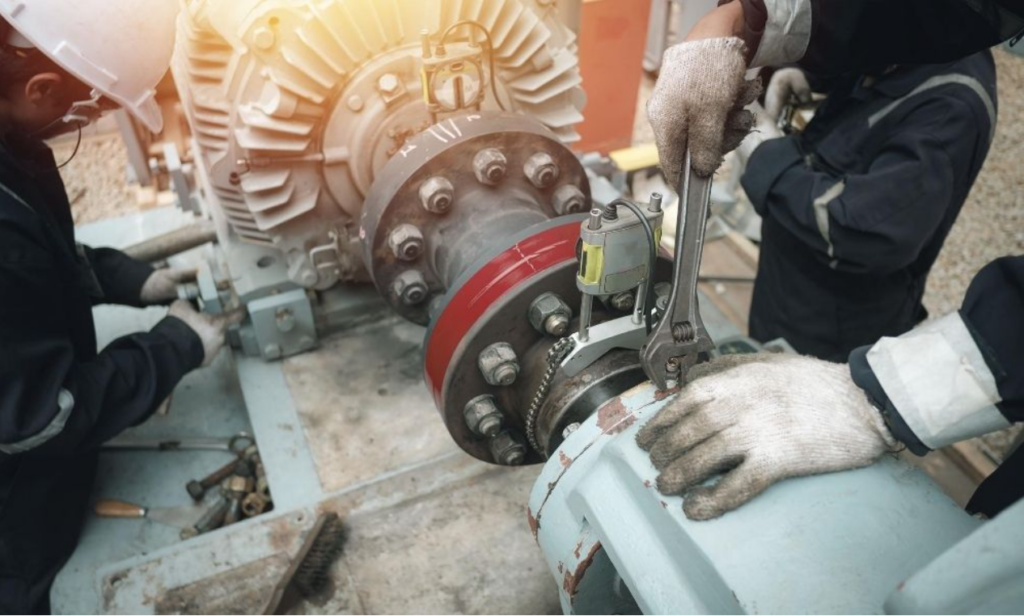
Open Windings
Open windings have a break somewhere in the wires, preventing electricity from getting through. All or part of your motor stops functioning when this happens.
Grounded Windings
Windings can sometimes come into contact with the motor frame or core, typically due to a loose wire. That grounds the circuit and causes all or part of the motor to stop functioning.
Shorted Windings
Shorts happen when two wires touch each other, stopping part of the motor from functioning correctly. Furthermore, overheating or power surges can burn through the wire’s insulation, resulting in a short. Over time, motor vibrations can also lead to shorted windings.
Compressor Is Stuck Or Locked Up
It’s normal that when the compressor first turns on, it draws a lot of power in order to start. However, some problems with the overall system can lead to the AC compressor not turning on at all or having extreme difficulty doing so; this will result in the unit drawing even more power. If the amount of energy at start-up gets too high, the compressor automatically stops or “locks up.”
The compressor will keep trying to start but fail each time. In this case, it continually draws a surge of electricity, leading to overheating. When this happens, you should be able to hear the compressor trying to start and also feel the heat from the compressor.
Some causes of lock-ups can be fixed by your technician. Others can be temporarily fixed, but the problem can re-occur. Often it is better to have the compressor replaced.
AC Compressor Costs
The cost of your AC compressor depends on its tonnage (i.e., how much cooling capacity), the type of compressor (single stage, variable capacity, etc.), and the brand of the compressor.
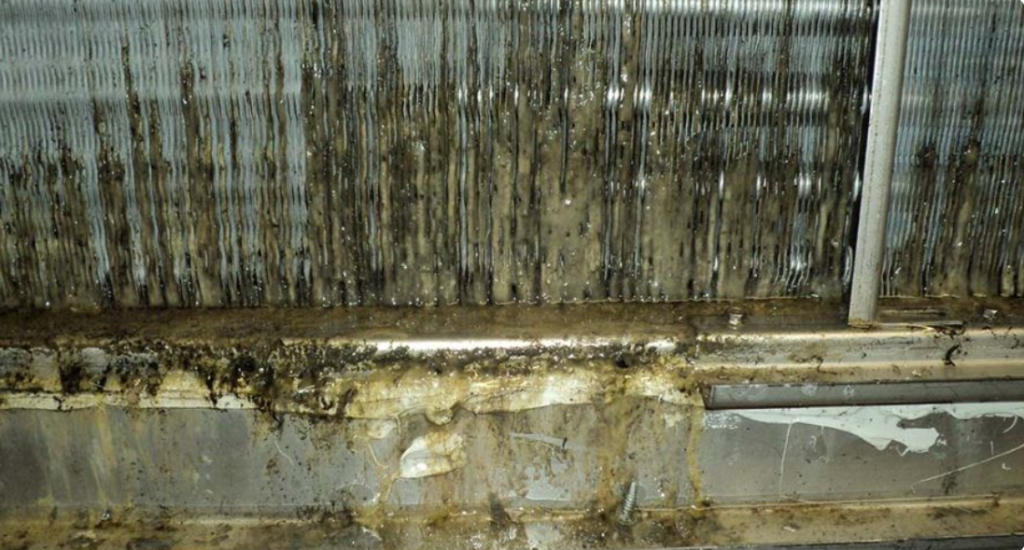
Prices of condensers typically range from $500 at their smallest to $2000. Compressor AND installation costs can vary from $1000 to $3500.
There may be situations when you have to consider replacing the entire outdoor unit or the system as a whole, especially if it isn’t under warranty. As a rule of thumb, consider replacing outdoor units older than five years because of the increase in efficiency and reliability. This can later save you money on your power and repair bills.
How Can I Prevent Future Breakdowns?
Hopefully you noticed the ongoing theme in this article that regular maintenance of your AC unit is crucial!
We previously explained it, and it’s pretty simple: a lot of air conditioner breakdowns occur in units where a small problem causes the AC unit to work harder over a long period; this can lead to wear and tear on your machine building up over time! The original small problem can become a major one. Regular maintenance keeps your unit running smoothly and catches issues while they are still relatively minor.
Part of the maintenance plan is something you can do with most air conditioning systems yourself: ensuring the filters on your unit stay clean. Doing so allows your air conditioning to blow lots of air over the condenser and quickly get rid of extra heat, saving you money on your power bill. If you leave your filters clogged for a long time, it can damage your compressor. They’re easy to clear out, and it’s totally worth the effort.
Your AC technician can keep your unit well-maintained, so set up annual maintenance tune-ups. They can keep your refrigerant levels exact, check for leaks, clean the condenser coil, and even more! And for all the same reasons: making sure your unit runs smoothly, keeping wear and tear minimal, and helping your power bills remain low.
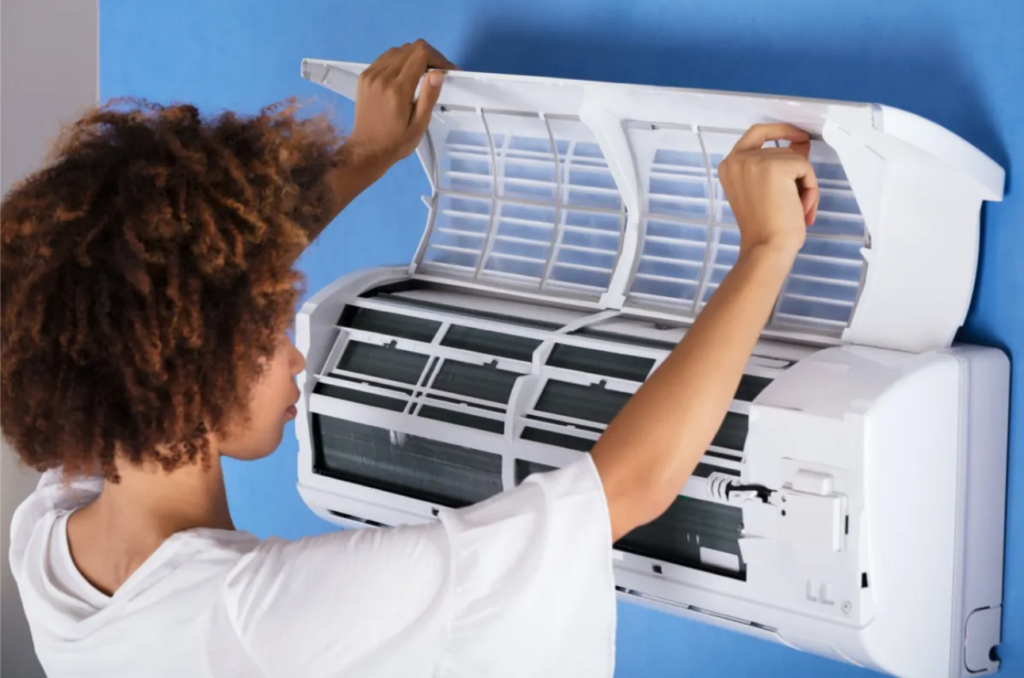
Cre: supertechhvac


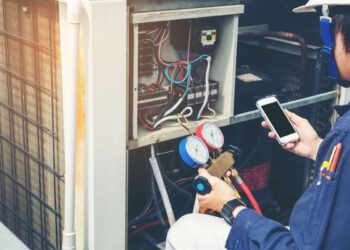

















Discussion about this post